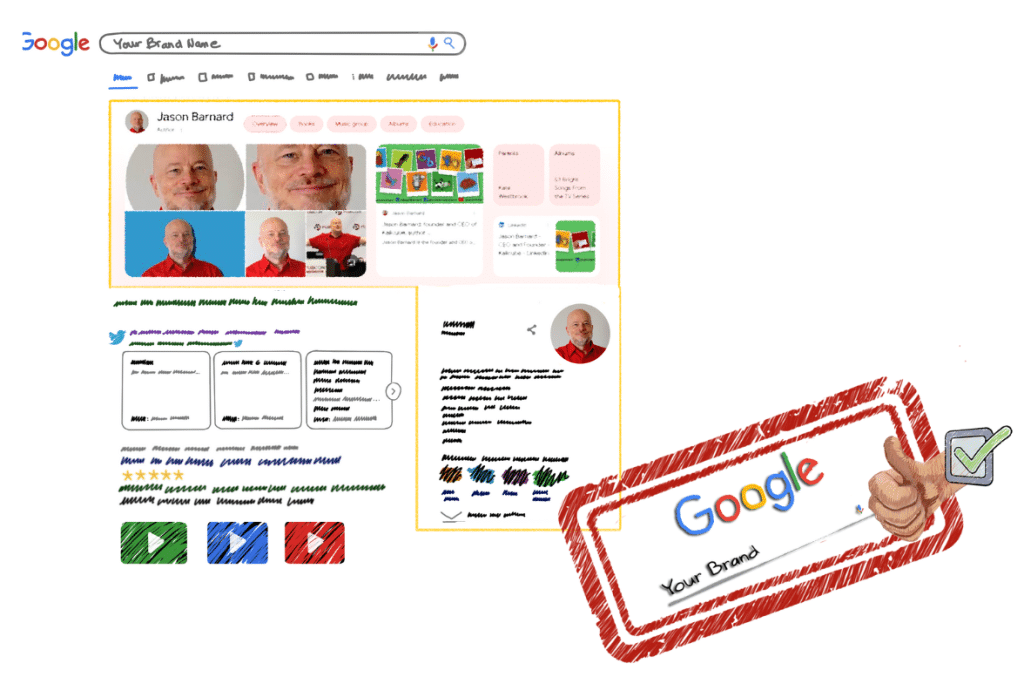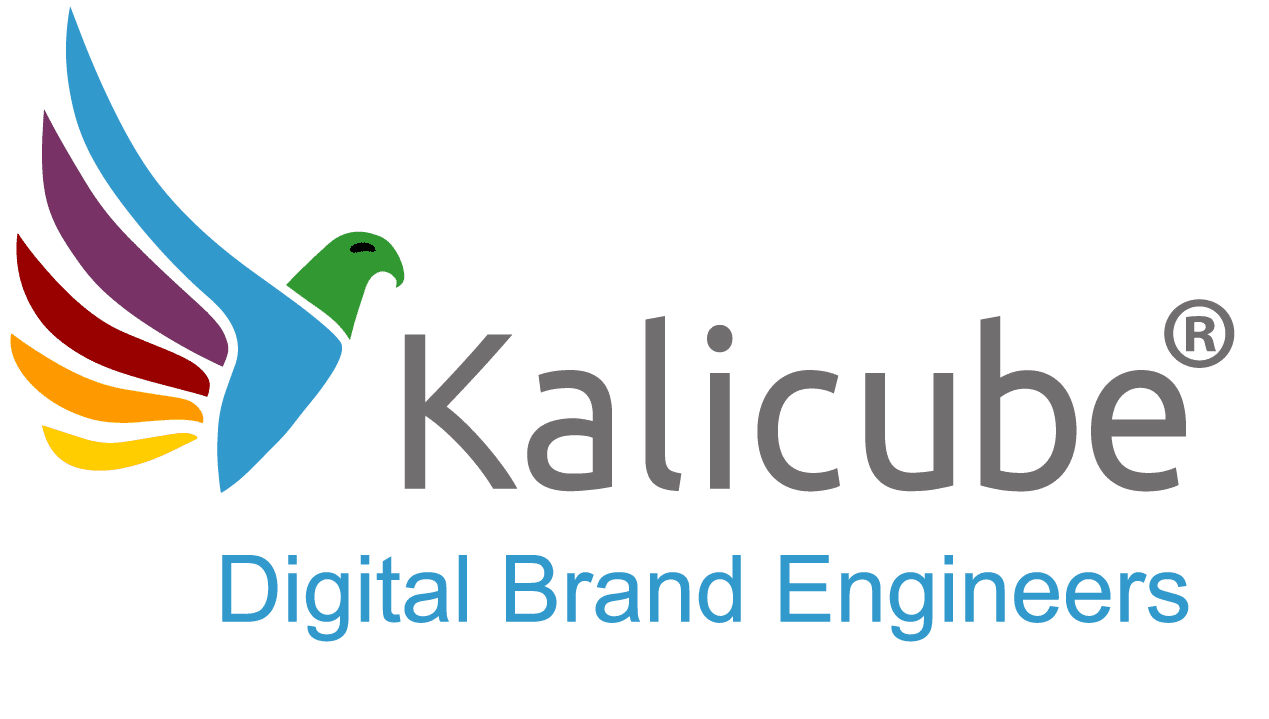Entitization in SEO: What You Need to Know

What is Entitization in SEO?
Entitization in SEO means Google’s Algorithms explicitly understand and recognize an entity as important. When Google recognizes your entity, it lists the entity in its Knowledge Graph and gives the entity a unique identifying number called a KGMID (Knowledge Graph ID).
Google defines an entity as “A thing or concept that is singular, unique, well-defined and distinguishable”. An entity is anything that fits the definition: Like a person, place, business, brand or concept.
Google’s Knowledge Graph is an enormous database Google uses to enhance its search results by storing semantic-search information its algorithms gather from various sources on the internet. It’s essentially a vast, machine-readable encyclopaedia of facts about the world.
The Knowledge Graph is the key to Google’s understanding of the relationships and connections between entities like people, places, and things. It includes information about entities and their attributes (like dates of birth and location), as well as the relationships between different entities (such as who worked for which company, who played in which group, which company specialises in which products, who is an expert in which topic, etc).
Google’s Knowledge Graph and entitization are fundamental to search engine optimization (SEO) and are central to Google’s strategy for understanding and organising the world’s information. It helps Google understand user queries and answer the questions users ask.
Google uses the information in the Knowledge Graph to create the information boxes, known as Knowledge Panels, that appear on the right side of the results when you conduct a Google Search.
And getting Google to entitize your brand is HUGE! Because it means Google trusts you.
Why is “Entitization” Important?
Entitization is important because it means the algorithms consider the entity important and well-documented enough, often with substantial mentions across various credible sources on the internet, to include it in its Knowledge Graph. This happens when Google is confident in its understanding of your brand.
When Google entitizes your brand and includes it in the Knowledge Graph, your brand gets a KGMID (Knowledge Graph ID), which is a unique identifier for entities in Google’s Knowledge Graph.
Having a KGMID means you have a Knowledge Panel on Google, indicating that Google has a confident understanding of who or what that entity is.
Instead of competing with trillions of webpages for a place in search results, Google has your brand listed explicitly in its Knowledge Graph as a trusted source, significantly improving your brand’s presence in search results on Google or other search engines.
Pro Tip: Getting Google to entitize your brand is a fundamental business strategy. Entities in Google’s Knowledge Graph have a stronger chance of influencing SERPs and getting better visibility. And this is huge.
How Does Google ‘Entitize’ an Entity?
Google entitizes an entity by developing an understanding of the entity and building on that confidence by finding corroborative signals about the entity in various places on the internet.
The algorithms collect and integrate information from various sources across the internet to create a more comprehensive understanding of each entity.
The Kalicube® Process is a step-by-step guide to entitizing your brand. Our SaaS platform, Kalicube Pro, automates The Kalicube Process™ and removes hours of manual work because it lays out exactly what your brand needs to do by comparing your brand to the competition and your audience.
Google’s process for entitization is listed below.
- Identifying the entity: Google first identifies what it considers to be an entity, which could be a person, a company, a location, etc.
- Establishing the ‘Entity Home’: This is usually a page on the entity’s website where it describes clearly and simply who it is, what it does, and who its audience is.
- Corroboration: Google then corroborates this information with data from trustworthy and relevant sites such as Linkedin, Wikipedia, Crunchbase, and any other second or third-party sites where the entity is the main subject.
- Understanding and Confidence: Google uses its algorithms to understand the entity and grow confident in its understanding. Defining an entity clearly, specifically and consistently increases Google’s confidence in its understanding of that entity.
- Dominance: When a user searches, Google decides which entity is the most relevant or dominant. It relies on its understanding and confidence in the entity, and the probability that the user is searching for that specific entity.
- Representation: Once Google has enough information, it represents the entity in its Knowledge Graph via a KGMID and then reflects it in search features like Knowledge Panels, snippets, and cards.
The key to Google ‘entitizing’ your brand or entity is providing clear, specific, and corroborated information about the entity so that Google’s algorithms can understand and verify it. This information becomes even more powerful when combined with a clear demonstration of Topical Authority and E-E-A-T (Expertise, Authoritativeness, and Trustworthiness). At Kalicube, we call E-E-A-T: Understandability, credibility and deliverability.
The Kalicube® Process is a step-by-step guide to entitizing your brand. Our SaaS platform, Kalicube Pro, automates the Kalicube Process and removes hours of manual work because it lays out exactly what your brand needs to do by comparing your brand to the competition and your audience.
At Kalicube, we work meticulously to ensure that Google (and Bing) get all the necessary information about an entity to feed to Google’s algorithms. We corroborate every detail and help brands establish robust topical authority and E-E-A-T signals. We follow a systematic approach to build Google’s confidence in the entity and ultimately recognize the entities we manage at Kalicube.
How Does a Knowledge Panel Demonstrate that an Entity Has Been Well-Entitized?
A Knowledge Panel is Google’s representation of facts about your brand. It includes facts it deems relevant. An entity has to be well-recognized or “well-entitized” for a Knowledge Panel to appear.
It means Google has gathered enough reliable and consistent information about the entity from various sources, understands the relevance and relationships with other entities, and has built trust with that information. Therefore, a Knowledge Panel suggests that the corresponding entity is understood and acknowledged by Google for its unique identity and contribution to its particular field or area of expertise.
An information-rich Knowledge Panel demonstrates that the entity has been well-entitized or well-understood by the algorithms. It shows that Google trusts the information it has gathered about the entity and that the entity is notable enough to deserve its own Knowledge Panel.
A Knowledge Panel is a “stamp of approval” from Google.

Can Entitization Influence My Website’s SEO Ranking?
Yes.
Google and other search engines are semantic engines trying to understand the people, places, or things (entities) – not keywords.
When your brand is understandable, credible, and provides deliverable and consumable content for your audience, Google will reward you for it. Topical authority and E-E-A-T are especially important here. Google wants to serve the best possible information (for the least cost to them) from the most trustworthy sources (those entities in the Knowledge Graph).
When your entity is well-entitized, Google can better understand who or what your brand is, its relevance to specific topics, its relationships with other entities, and its overall presence on the web.
This better understanding and clarity can improve ranking on the search engine results page (SERP) and generative AI search results.
A well-optimised Brand SERP will result in a brand dominating the search engine results page.
How does”Entitization” Fit Into Brand SERP Optimisation and Knowledge Panel Management?
“Entitization” is crucial in Brand SERP Optimization and Knowledge Panel Management. Unless Google trusts your brand, it will not reward you with a Knowledge Panel or recommend you in the search results for searches for your brand name.
In the context of Brand SERP Optimization, entitization helps Google understand who you are as a brand, what you offer, and who you serve. Clearly defining your entity and its relationship to other entities make it easier for Google’s algorithms to understand your brand. It allows you to educate Google about your brand and control your brand narrative in the search results.
As for Knowledge Panel Management, entitization is equally significant. A Knowledge Panel is a rich, visible display of the facts Google understands about your brand. It pulls information from multiple sources to give users a quick overview of information about a brand, person, place or thing. The better Google’s algorithms understand your entity, the more accurate and complete your Knowledge Panel will be. It’s important to manage the information displayed about your entity in the Knowledge Panel, as inaccurate or incomplete information can lead to confusion or misrepresentation of your brand.
It means your audience can get everything they need about you and your offerings from one place.
Pro Tip: When you create an Entity Home that is a central reference for everything to do with your brand, then provide clear, consistent information about your brand across the internet. The algorithms can corroborate that information with the Entity Home. When you strategically manage this information – you’re educating Google – and telling your story – rather than Google trying to piece together fragmented information across the internet.
Once Google understands your brand, you can control your narrative and display the services and products you offer online as part of your brand story.
Therefore, entitization is critical for managing your online presence on Google. By working on entitization, you’re not just optimising for a search engine - you’re shaping the way your brand is understood and represented online.
At Kalicube, the team specialises in Brand SERP Optimization and Knowledge Panel Management, helping clients define their entities and present the best possible picture of their brands on Google.
Book a free call with Jason Barnard now to get started.





